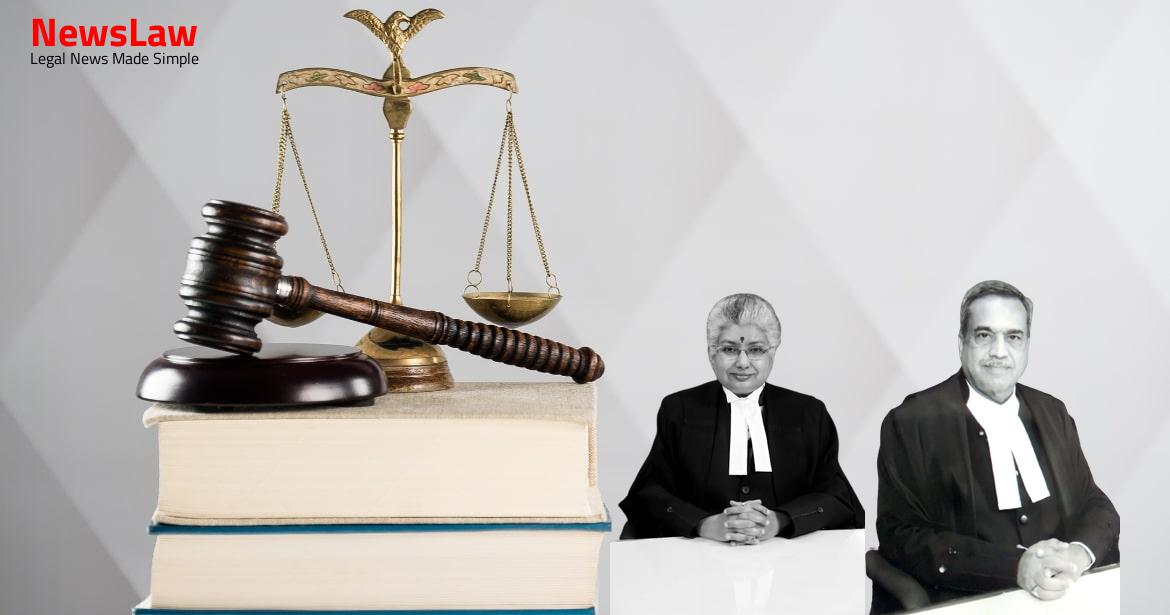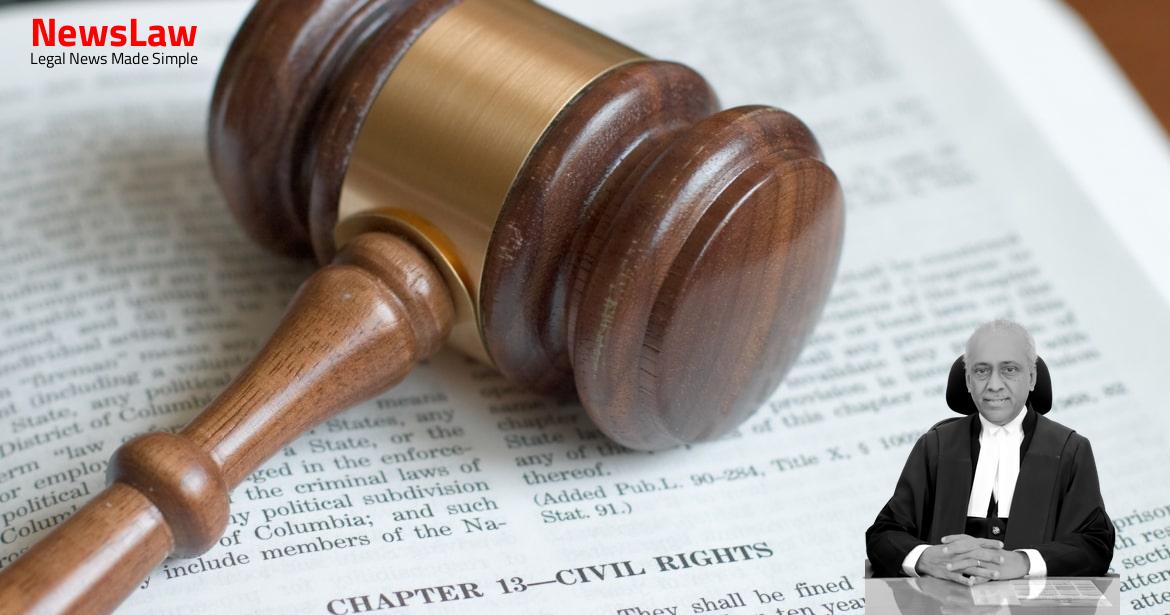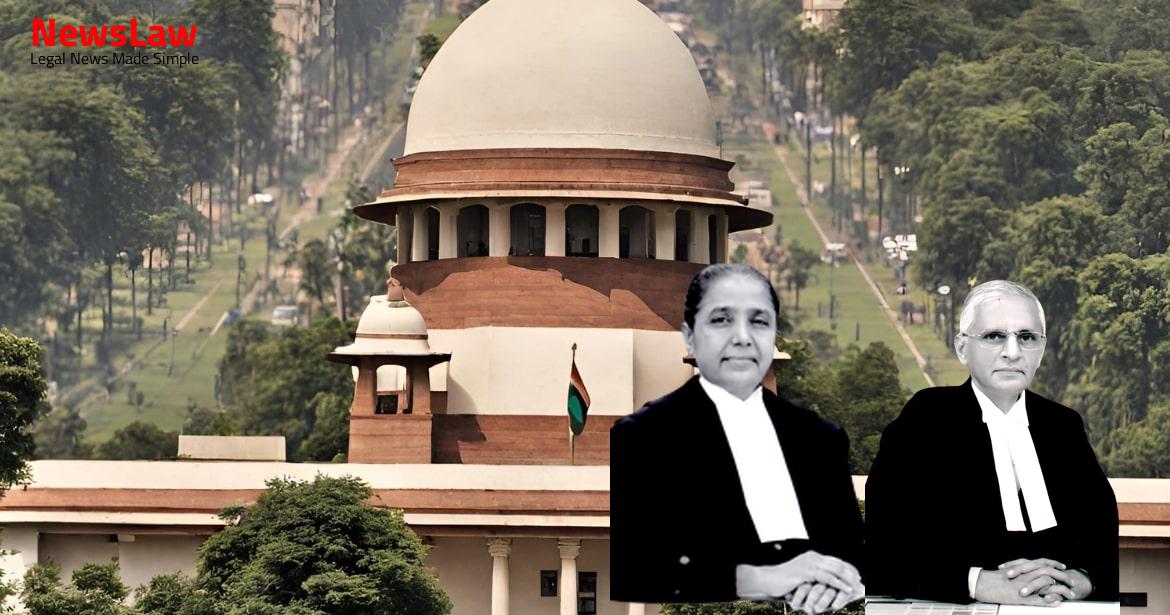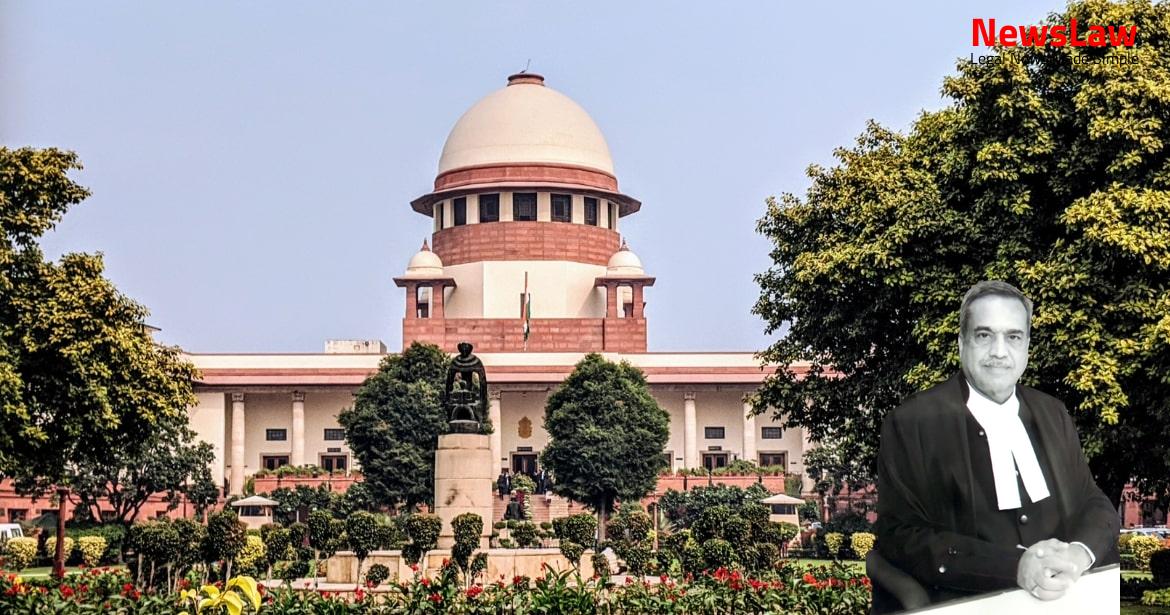Explore the nuanced legal analysis of taxation entries in a recent case involving lotteries. The court’s thorough examination focused on interpreting the constitutional provisions regarding legislative competence, taxation entries, and the distinction between regulatory powers and taxation. Stay informed on the complexities of legal interpretations in the context of state lotteries and the broader taxation framework.
Facts
- The High Court affirmed the finding regarding accepting advance tax but did not accept the challenge to the section
- A companion petition challenged Section 10 of the Act which was upheld by the High Court and Division Bench
- The Karnataka High Court held that the Karnataka Tax on Lotteries Act, 2004 was beyond legislative competence
- Amounts deposited by states for lottery schemes were directed to be refunded
- The Kerala High Court declared the Kerala Tax on Paper Lotteries Act, 2005 as unconstitutional and invalid
- States of Karnataka, Kerala, and others are appealing the decisions
- The respondents are states like Nagaland, Arunachal Pradesh, Meghalaya, Sikkim, organizers of lotteries in Karnataka and Kerala
- The controversy revolves around the interpretation of ‘betting and gambling’ in the Constitution
Also Read: Analysis of Tax Exemption for Enemy Properties
Issue
- Whether State Legislatures have legislative competence to levy tax on lotteries organized by the Government of India or a State
- Whether the power of taxation on ‘betting and gambling’ falls within Entry 62 of List II
- Validity of the Acts passed by Karnataka and Kerala State Legislatures under Entry 62 of List II
- Whether Entry 40 of List I restricts the scope of Entries 34 and 62 of List II
- Whether the subject of ‘lotteries organized by the Government of India or State’ in Entry 40 of List I includes the power to levy tax on such lotteries
Arguments
- The petitioner argued that the tax imposed by the impugned legislation is in the nature of sales tax on paper lotteries.
- They contended that if the legislation is held unconstitutional, refunds should be granted prospectively.
- It was stressed that the states can legislate to regulate betting and gambling activities, except for lotteries organized by other states governed by the Lotteries Act, 1998 under Entry 40 of List I.
- The difficulty arising from allowing the current scheme to continue in Karnataka was highlighted, where tax amounts are collected in advance.
- Reference was made to a decision establishing a connection between ‘betting and gambling’ under Entry 34 of List II and tax under Entry 62 of List II.
- Recourse to Entry 97 of List I can only be taken after exhausting specific Entries under List I and List II.
- Allowing state laws like the impugned legislation to operate beyond territorial limits could encroach upon other states’ legislative powers.
- The GST regime was distinguished from the impugned legislation, stating that the latter does not seek to impose tax on the sale of lottery tickets.
- The argument that lotteries are outside the ambit of trade and commerce, thus not protected under Article 19(1)(g) or Article 301, was emphasized.
- The respondents filed a writ petition against the State of Kerala to accept advance tax.
- Referring to State of Uttar Pradesh vs Vam Organic Chemicals Limited, it was emphasized that regulatory fees should not be mistaken for taxes.
- The levy of regulatory charges under the Lotteries Act, 1998 was clarified not to be a tax and does not affect Entry 62 of List II.
- It was argued that one transaction can attract both central and state taxes, as held in Federation of Hotel and Restaurant Association of India.
- The principle of ‘specific’ excluding ‘general’ was highlighted in relation to taxing and regulatory entries.
- The judgment in Kesoram Industries Limited and Jindal Stainless Limited were cited in support of the arguments.
- Examples were given where regulatory powers lie with the Centre and taxing powers with the States.
- The impact of the GST regime on Entry 62 of List II was discussed, indicating its reduction in scope.
- A case involving the ban on sale of lottery tickets by Maharashtra was mentioned to highlight the distinction between regulatory powers and taxation.
Also Read: SC Clarifies: Choice of Depreciation Method Allowed Until Return Filing
Analysis
- The court examined the nature of prize competitions to determine whether they should be categorized as gambling activities.
- Lotteries, as a form of gambling, involve the distribution of prizes by chance and require participants to make a payment or consideration in return for the chance to win a prize.
- The definition of ‘lottery’ in various legal dictionaries and authorities establishes it as a species of gambling where chances are sold or disposed of for value in the hope of winning a larger sum.
- The sale of lottery tickets involves three essential elements: prizes, chance, and consideration, and Black’s Law Dictionary defines gambling as risking something valuable for a chance to win a prize.
- The distinction between ‘gambling’ and ‘trade’ was noted, with gambling involving chance and trade involving skill.
- The court considered various cases and principles to determine that lotteries are a type of gambling, even when organized by the state.
- Regulation and control of lotteries by the state does not change the inherent gambling nature of lotteries.
- Lotteries organized by the state, under Entry 40 of List I, were considered equivalent to other forms of gambling and not trade or commerce.
- The court held that the sale of lottery tickets transfers an actionable claim rather than goods, making it subject to sales tax.
- Even state lotteries retain their gambling nature, with chance being a dominant factor irrespective of state organization.
- The analysis focused on the interpretation of taxation Entries in List II even when regulation of an activity is provided under an Entry in List I.
- The doctrine of pith and substance was applied to find out the true character of the legislation and determine the Entry within which it falls.
- In cases of apparent conflict between Entries, efforts were made to harmonize or reconcile them to avoid overlapping.
- Taxation was identified as a distinct matter for legislative competence, separate from general subjects of legislation.
- The power to tax must be explicitly conferred and cannot be implied or inferred from a general legislative entry.
- Specific observations were made regarding the taxation of lottery schemes organized by the Government of India or State Governments within the context of betting and gambling activities.
- The taxation Entry in List II, denoted as Entry 62, granted State Legislatures the power to tax betting and gambling activities, including lotteries.
- The State Legislatures’ competence to levy taxes on betting and gambling, regardless of who conducted them, was affirmed within the specific taxation Entry of List II.
- Emphasis was placed on interpreting taxation Entries in compliance with the Constitutional scheme and avoiding conflict or negation with other Entries.
- Various judgments and principles were referred to in guiding the interpretation and application of taxation-related Entries.
- The taxation of lotteries was examined within the broader context of gambling activities, emphasizing uniformity in regulation throughout the country.
- The importance of distinguishing the primary object and essential purpose of legislation from its incidental effects in determining the character of the levy was highlighted.
- Section 3 of the Act prohibits State Governments from organizing, conducting, or promoting lotteries unless under conditions in Section 4.
- The Union can impose or authorize taxes on trade or business carried out by State Governments.
- Parliament may enact laws for the whole or part of India, and State Legislatures for the respective states.
- Parliament has exclusive power on matters in List I while the Concurrent List allows both Parliament and State Legislatures to make laws.
- The State List permits State Legislatures to make laws on specific matters within the state.
- The Act specifies conditions for organizing lotteries by State Governments in Section 4.
- Lotteries conducted by private entities are not subject to tax under this Act.
- The Central Government can make rules under the Act.
- Betting and gambling activities by private entities can only be regulated by State Legislatures.
- The Act defines ‘promoter’ to include governments organizing lotteries and persons selling tickets on their behalf.
Decision
- The appeals filed by the State of Karnataka and State of Kerala and others are allowed
- The impugned judgments passed by the Division Benches of the High Courts of Karnataka and Kerala are set aside
- Parties are to bear their respective costs
Case Title: STATE OF KARNATAKA AND ANR. ETC. Vs. STATE OF MEGHALAYA AND ANR. ETC. ETC. (2022 INSC 331)
Case Number: C.A. No.-010466-010476 / 2011



